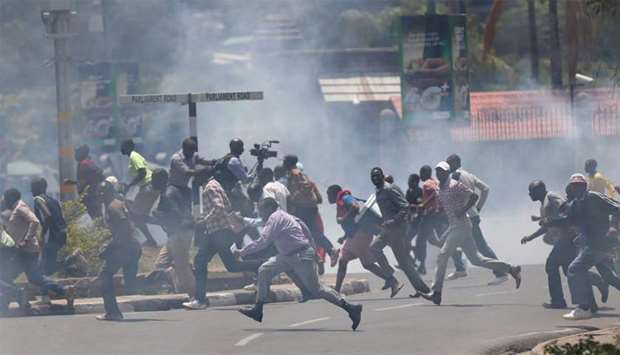Kenyan police used tear gas to disperse opposition protesters on Monday in the capital Nairobi and another city as demonstrations against a presidential vote re-run continued despite a government ban.
Kenya's supreme court nullified the presidential election result in August, citing procedural irregularities and voiding the victory of President Uhuru Kenyatta. The ruling opened the way to a repeat vote on Oct. 26.
But opposition leader Raila Odinga has refused to take part, saying the re-run should not happen until major reforms are introduced to prevent another failed vote.
The election board has said the polls will go ahead anyway, pitting Kenyatta against six other candidates, none of whom polled more than 1 percent in August.
The standoff has spooked investors in the region's most advanced economy and is slowing growth. Last month, Kenya lowered its 2017 economic growth forecast to 5.5 percent due to drought and political uncertainty.
On Sunday, Odinga repeated his call for more protests, which authorities banned in the central business districts of Nairobi, the coastal city of Mombasa and the opposition stronghold of Kisumu in western Kenya.
The events in Kenya have raised confusion among voters and fears that politically-driven violence might escalate.
At a political rally on Monday, Kenyatta accused the opposition of seeking to wreak chaos and force a coalition government, allegations the opposition has denied.
At least 33 people died in Nairobi during a police crackdown on opposition supporters after the August election, including a child and a pregnant woman, Amnesty International and Human Rights Watch said on Monday. The national police disputed the report, saying it was ‘totally misleading and based on falsehoods.’

